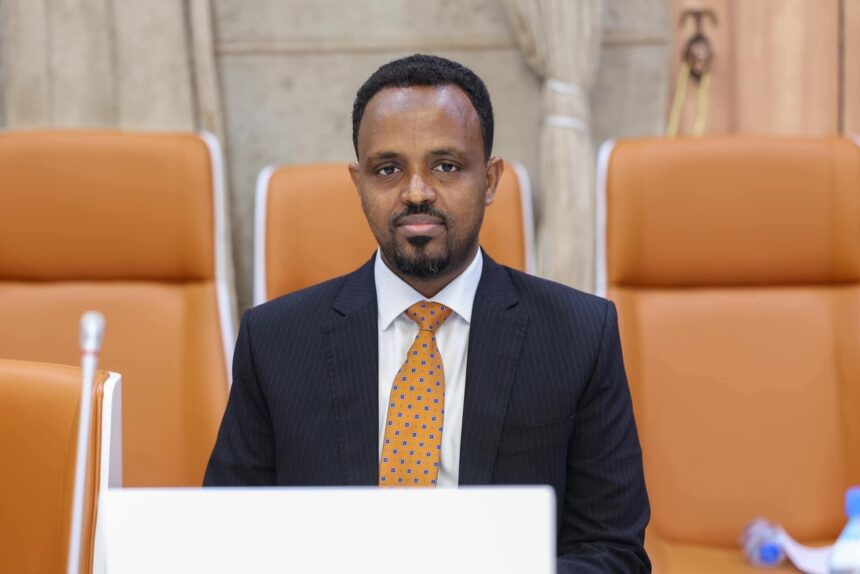The dream of a stable, democratic Somalia, where citizens hold the ultimate authority, is visibly transitioning into reality. Following the release of the first voter registration figures from the capital, Mogadishu, a profound truth has emerged: the path to democracy is being paved by a million citizens ready to cast their votes for the first time in over 50 years. This landmark achievement, signifying the return of decision-making power to the populace, a right last exercised in 1969 is the result of a protracted, challenging, and meticulously executed national strategy.
The sheer fact that nearly a million residents in Mogadishu have registered to choose their leaders holds a significance that transcends any other political event in the country’s recent history. This is not merely an administrative exercise; it is a powerful declaration of national intent.
To fully grasp the magnitude of this triumph, one must examine the five difficult, yet successful, steps undertaken by the current administration to achieve this moment:
1. Forging the Political Consensus for Direct Elections
Within weeks of assuming office, President Dr. Hassan Sheikh Mohamud prioritized establishing a political consensus for the direct election system mandated by the Constitution and aligned with his 2022 political pledges. Through ten consultative meetings convened by the National Consultative Council (NCC), the government successfully negotiated with Federal Member States. This comprehensive political agreement was the essential groundwork that allowed voter registration to commence fairly and consistently across the majority of the nation. It stands as the foundational step worthy of historical recognition.
2. Finalizing the Legal Framework for Universal Suffrage
The Federal Government, under the leadership of Prime Minister Hamza Abdi Barre, moved swiftly to translate the political consensus into tangible law. Utilizing the established political agreement, the administration successfully navigated the complex legislative process required to ratify all necessary laws. This action ensured that the forthcoming direct election not only operates on a clear legal basis but is fully rooted in and compliant with the Federal Constitution.
3. Building the Electoral Institutions
With the political and legal pillars secured, the government focused its efforts on establishing the institutions necessary to implement the direct election system. Through relentless effort, the administration succeeded in creating properly mandated and fully empowered electoral commissions. It is these legally sound bodies that ultimately presented the results of the groundbreaking initial voter registration phase.
4. Securing the Electoral Environment
Parallel to the institutional work, the government engaged in a robust and unyielding campaign to mitigate all threats that could jeopardize the electoral process. This involved a fierce war to diminish the capabilities of the Khawaarij extremists, coupled with intensified efforts to curb illicit weapons and combat organized crime. This monumental security effort ensured that during the nearly five-month registration period by the grace of God not a single security incident occurred, allowing one million citizens to queue and register peacefully across the capital’s districts.
5. Mobilizing Essential Resources and Logistics
The execution of voter registration, and indeed the entire election process, demands enormous resources: equipment, facilities, trained personnel, transport, and substantial funding. Demonstrating self-reliance, the Federal Government moved decisively to facilitate and cover all the logistical requirements of the electoral commission. This direct and unwavering support enabled the commission to successfully complete the registration process and present the positive results announced this week.
The Meaning of the Milestone
Collectively, these actions have transformed a longstanding national dream—one dating back to the formation of the Arta government into a tangible reality. This monumental effort brings Somalia closer to establishing a government that derives its full legitimacy from its populace.
The significance of this achievement is greater than the narrow interests of any individual or group. It is a moment that answers the aspirations of Somalia’s youth and provides a genuine path forward.
The message sends:
To Skeptical Leaders: The road to direct elections is inevitable, and the current leaders have bravely opened this difficult path. Even if the current political direction is unwelcome, leaders should join the effort, recognizing that they too stand a chance to harvest the fruits of this democratic breakthrough.
To the Somali Citizen: This success is a tangible remedy for the prolonged national ailment of state failure. Citizens are urged to view this opportunity not through the narrow lens of individual, clan, or regional bias, but as the future of Somalia and its children finally resting in their hands. They must ensure that their participation moves the nation forward, not backward.
There is no doubt that challenges and imperfections exist, and that not every citizen will be immediately satisfied. However, as the Deputy Minister asserts, there is absolutely no better alternative to this path. This milestone undeniably guides Somalia towards the direction of eventual success.





